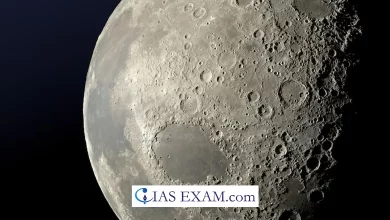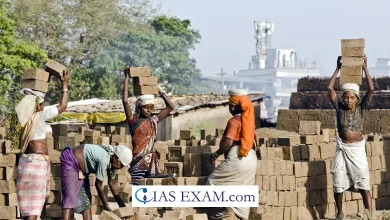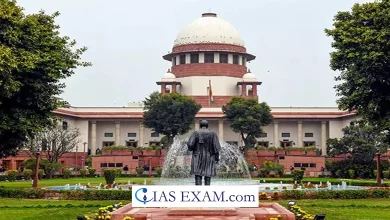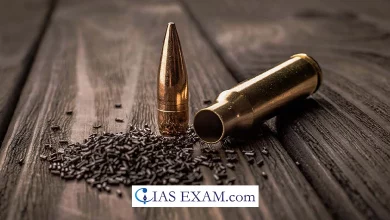CJI: New Criminal laws protect citizens rights
Syllabus: Polity and Governance [GS Paper-2]

Context
Chief Justice of India (CJI) , D.Y. Chandrachud, has assured that the new criminal laws in India will have adequate safeguards to protect the rights of citizens. This statement comes at a time when there are concerns about the potential misuse of laws and the impact on individual liberties.
Details about the New criminal laws in India and how they will affect citizens rights
- New criminal justice system: Chandrachud, Chief Justice of India, while addressing the critical issue highlights it as a ‘watershed moment’ for the Indian Society.
- Recording search operations: The new sacrament demands video-audio recording and forensic personnel presence in search and seizure operations. If the offence is punished with more than seven years imprisonment, then the laws require a forensic expert at the crime scene.
- ED, CBI misuse allegations: The Law Minister hit back at the Opposition’s claims that ED and CBI are being utilised to suppress their voice.
- Privacy concerns: The CJI stated that the furniture would work if those responsible for the management and implementation of the laws were able to adjust to the changes. Along with predicting the emergence of leaks of essential data and the rise of threat to the privacy of the victim and the accused, the technology was also used to prevent such from happening.
- Laws need supporting infrastructure: The CJI opined that in addition to the capital expenditure brought about by this initiative, consequent development in the supporting infrastructure is also required, such as strengthening forensic experts, training of investigating officers, and investment in the court system.
Enhanced Legal Framework
- Justice Chandrachud commended the new laws for ushering India’s criminal justice system into a new era by incorporating crucial improvements aimed at protecting victim interests and enhancing the efficiency of investigations and prosecutions.
- Notably, the BNSS replaces the existing Code of Criminal Procedure and introduces measures such as audio-visual recording of search and seizure operations and the presence of forensic experts at crime scenes for serious offences.
Protection of Individual Liberties
Attributing to the CJI, it is clear that the newly established criminal laws will not rob individuals of their liberties with the intention of protecting the citizens rights. The laws will have the following provisions to protect individual liberties:The laws will have the following provisions to protect individual liberties:
- Right to Privacy: The newly designed laws will have incorporated the realms of privacy of individuals and specially will cater the digital evidence.
- Right to Fair Trial: The laws will grant the accused with the right to a fair trial and which he may be guaranteed with the right to a legal representation and the right to cross examine his witnesses.
- Right to Protection from Self-Incrimination: These laws will protect citizens from making statements that can be self- incriminating and make them in a better position to defend themselves against the prosecution.
Conclusion
The CJI’s assurance that the new criminal laws will have safeguards to protect citizens’ rights is a welcome move. The new laws aim to modernise the criminal justice system and improve investigation techniques while protecting individual liberties. The safeguards in the new laws will ensure that the rights of citizens are protected and that the criminal justice system is fair and impartial.
Source: The hindu
UPSC Prelims Practice Question
Q.Which of the following statements best describes the role of the Chief Justice of India (CJI)?
a. The CJI is primarily responsible for enforcing criminal laws nationwide.
b. The CJI presides over the Supreme Court of India and is the highest judicial authority in the country.
c. The CJI is appointed by the President of India and serves as the head of the executive branch.
d. The CJI oversees the legislative process and ensures compliance with constitutional principles.
Ans-“b”





.png)



